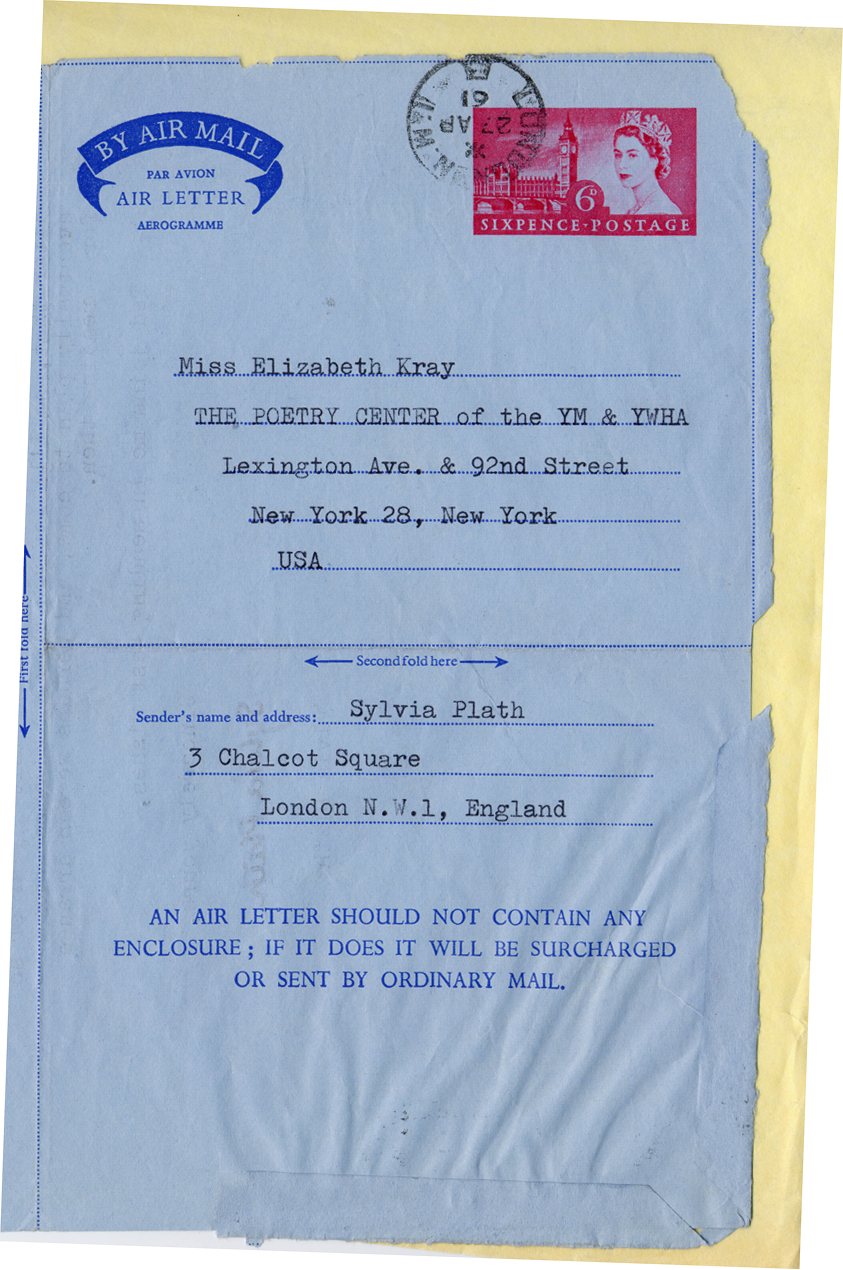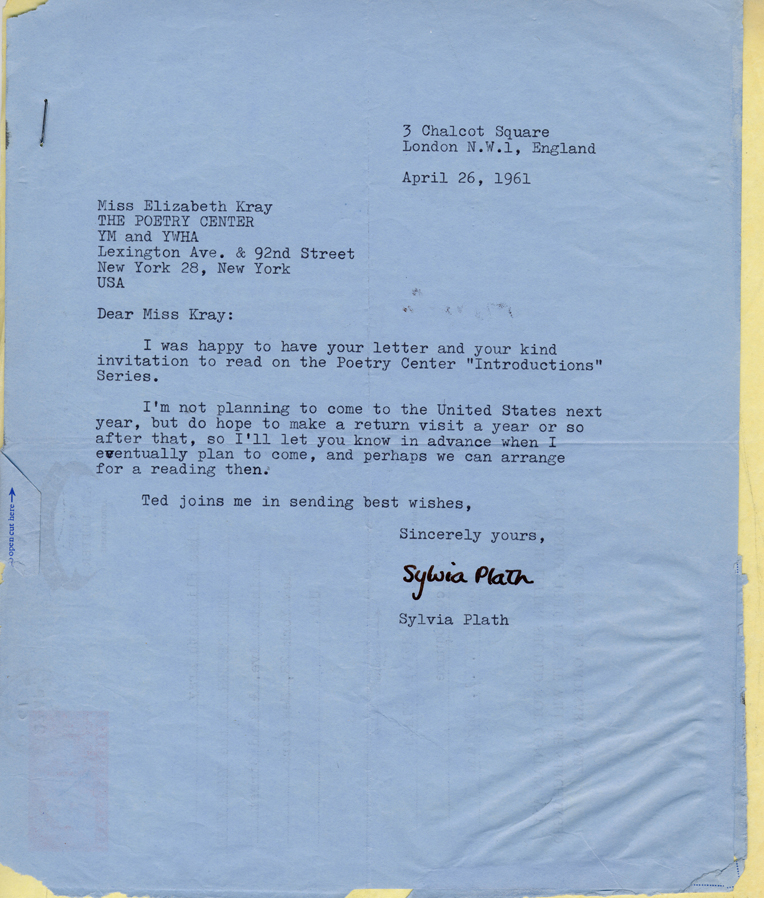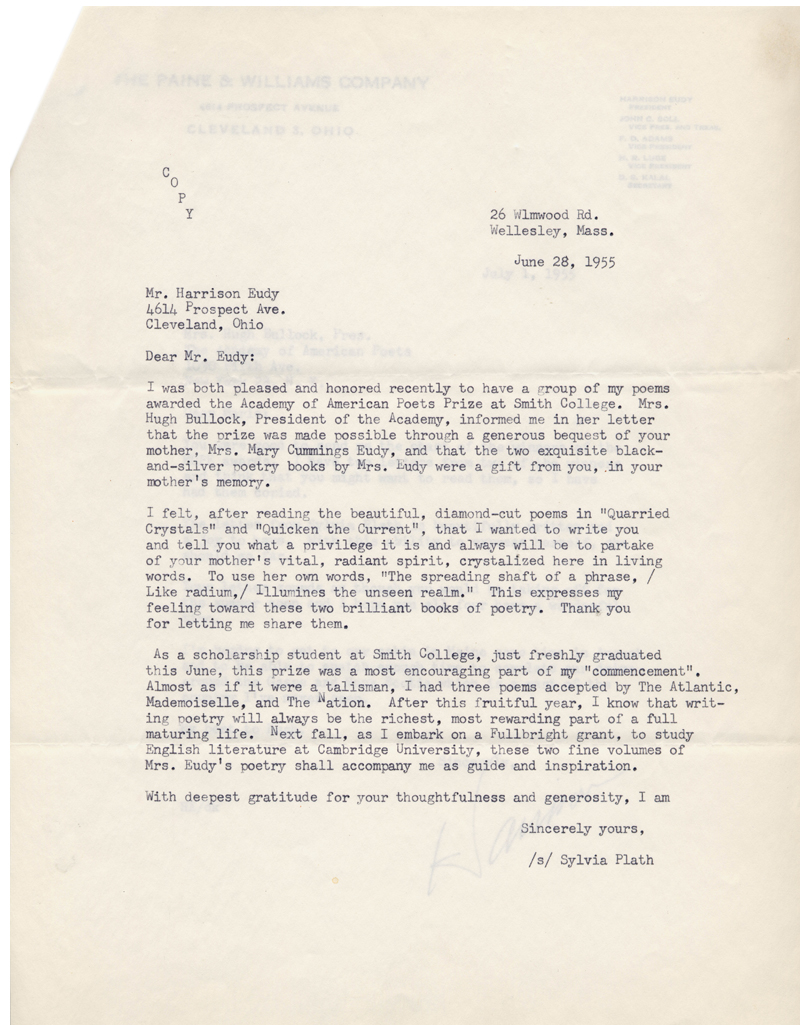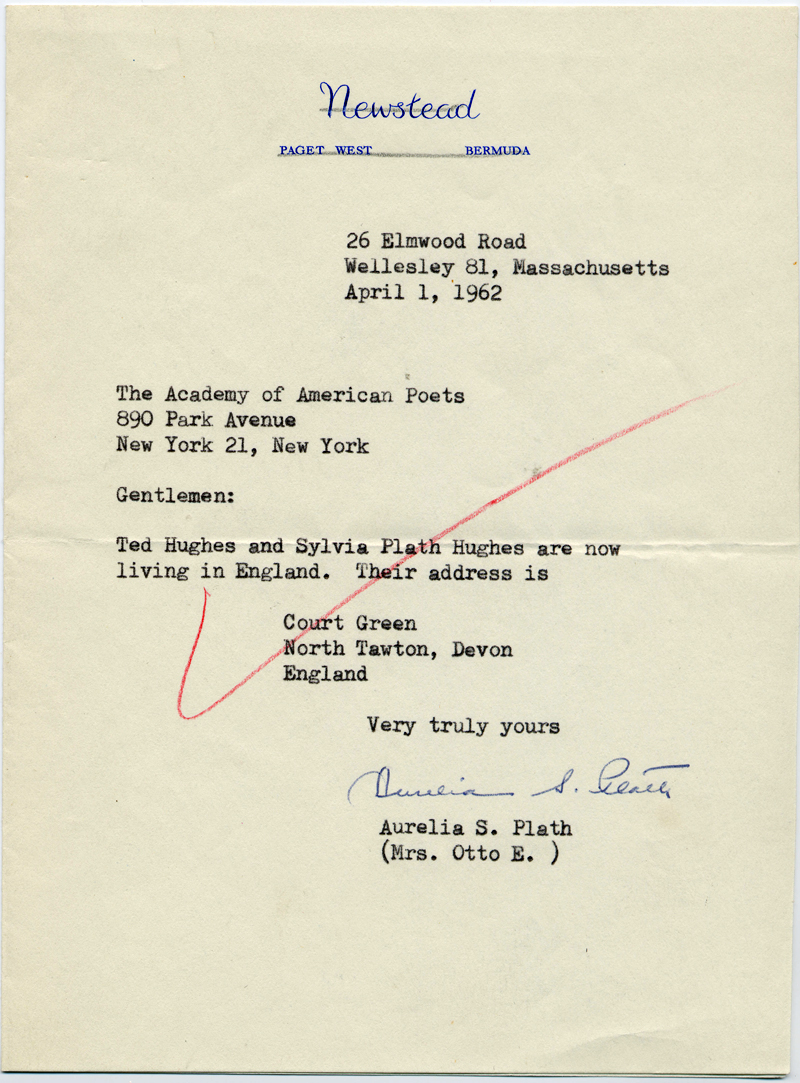In 1955, Sylvia Plath, who was then a student at Smith College, typed up a group of poems on onion skin paper and mailed them to the Academy of American Poets in New York City to be considered for one of its College Poetry Prizes. Founded in 1934, the Academy has recognized young poets for much of its history, and today awards more than 200 prizes to poets in undergraduate programs across the United States.
Plath’s poems won. Uplifted and inspired by the recognition, she wrote a letter to thank the donor, Mr. Harrison Eudy, who had endowed the prize in memory of his mother, an aspiring poet herself. “After this fruitful year,” Plath wrote to Eudy, “I know that writing poetry will always be the richest, most rewarding part of a full maturing life.”

 During the next seven years staff at the Academy of American Poets and Plath remained in contact as her poetry life quickly blossomed. In 1961, Elizabeth Kray, the Director of the Academy at the time, invited Plath to return from England to read in a series apparently offered in partnership with the 92nd Street Y. Plath declined, explaining that she wasn’t planning on returning to the U.S. for a year or two.
During the next seven years staff at the Academy of American Poets and Plath remained in contact as her poetry life quickly blossomed. In 1961, Elizabeth Kray, the Director of the Academy at the time, invited Plath to return from England to read in a series apparently offered in partnership with the 92nd Street Y. Plath declined, explaining that she wasn’t planning on returning to the U.S. for a year or two.
A year later, in 1962, the Academy sent a mailing to Plath’s home address in Massachusetts, prompting her mother Aurelia to send a note informing the organization of Plath and Ted Hughes’s new address in England. Plath's mother typed the note on a piece of re-purposed stationery from a luxury resort in Bermuda.
Who could have imagined, as the Academy staff person updated Plath’s address (indicating so by marking Aurelia’s note with a large, red check mark) that less than a year later, on February 11, Plath’s poems and her life would come to such a tragic end.


